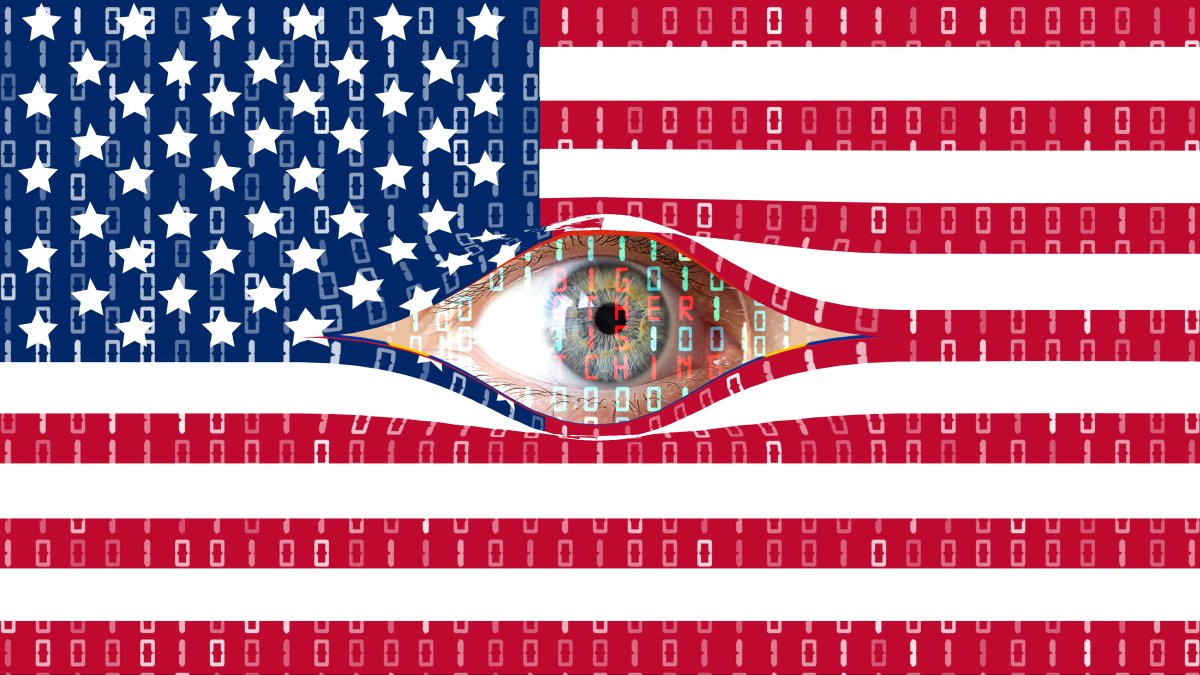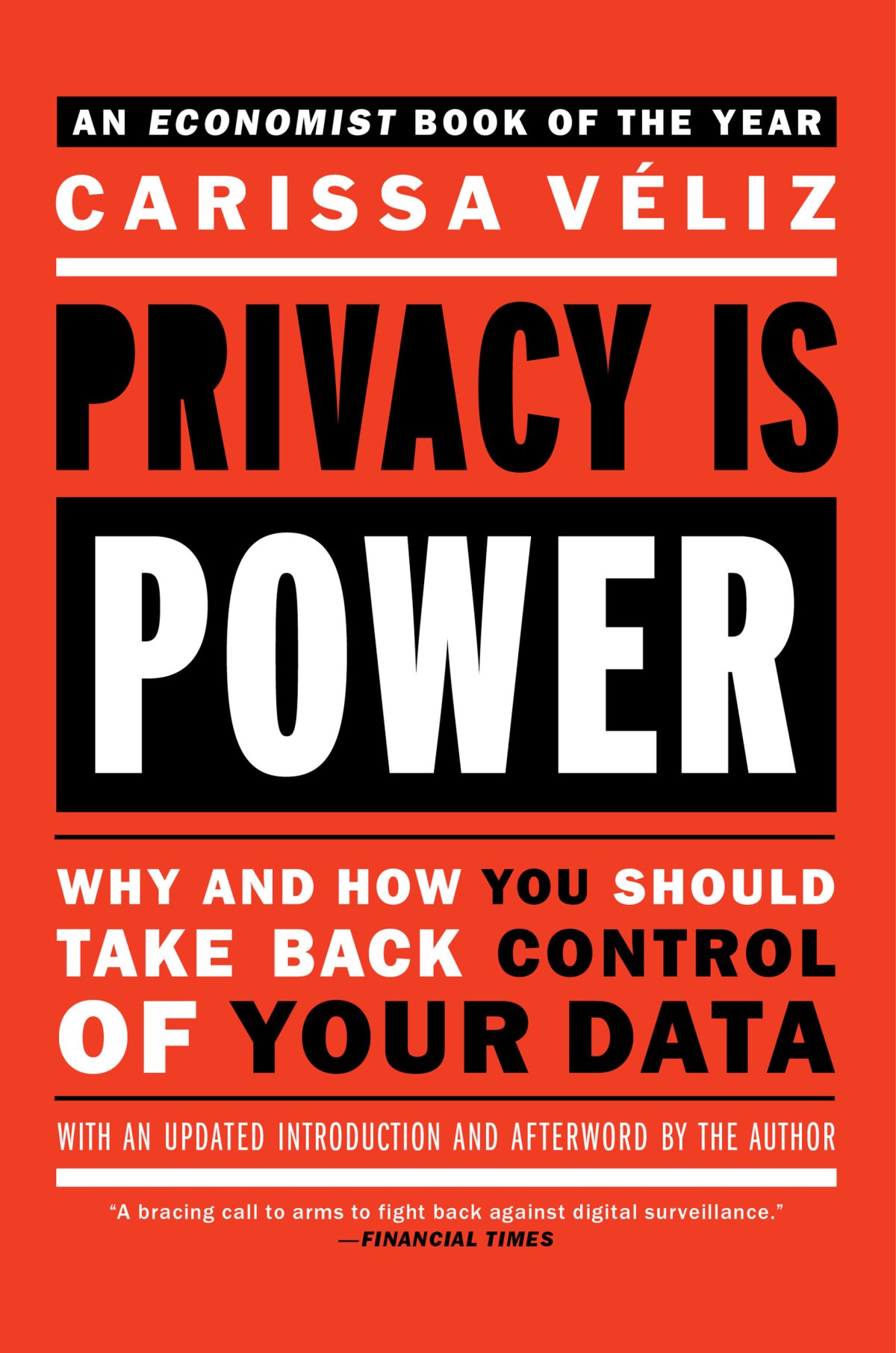In recent years, concerns over digital data mining and violations of online privacy have become an increasing concern within both public and political spheres.
Governments have been found to questionably employ data collection raising concerns over the increased surveillance it can afford governments, and the impact the practice may have on the democratic process and the broader geopolitics spectrum.
Global tech giants like Facebook and Google have also been denounced for their management of users' private data - which is often sold to third parties for tailored advertising purposes - as fears have grown over privacy breaches.
These concerns are meticulously explored in Privacy is Power: Why And How You Should Take Back Control of Your Data, by the philosopher Carissa Véliz. The book exposes the ethics of how corporations and governments exploit data, and how users can obtain greater protection.
Privacy is Power is being reissued in a paperback format on January 25, with an updated introduction and afterword by the author. Véliz is an Associate Professor at the Faculty of Philosophy and the Institute for Ethics in AI, and a Tutorial Fellow in Philosophy at the University of Oxford's Hertford College.
Newsweek has been given exclusive access to the book's new afterword, which can be read in full below.
Afterword — Privacy is Power: Why And How You Should Take Back Control of Your Data
We are still being watched. Since the hardback edition of this book came out, the battle between privacy and surveillance has only intensified. With each scandal more shocking than the previous one, the alarm bells are growing louder, and the stakes are higher than ever.
Among the many privacy news items that populated the headlines last year, a few stand out. The first is the worry that a U.S.-funded sensitive database containing 40 data points for every member of the Afghan National Army and Police – from iris scans to family links – might have ended up in the hands of the Taliban after the retreat of United States troops. The case illustrates the toxicity of personal data, and the foolishness of not having a contingency plan to delete sensitive data in the event of an emergency. When people collect personal data, there is a tendency to imagine it ending up in the best possible hands and being used for good. But sensitive data is so prone to abuse, so valuable, and so hard to keep safe, that it is much more realistic to imagine it ending up in the worst possible hands, given enough time and data transfers.
The second news that shook the world was the Pegasus Project. In July 2021, a leak revealed that more than 50,000 human rights activists, academics, lawyers, and journalists around the world had been targeted by authoritarian governments using Pegasus, a hacking software sold by the Israeli surveillance company NSO Group. These professions need privacy to carry out their roles in society. Without privacy, a human rights activist cannot protect herself from an abusive government; an academic cannot research freely; a lawyer cannot guarantee their clients the confidentiality they are owed; and a journalist cannot keep herself or her sources safe.

It is probably not a coincidence that the most represented country among the people who were targeted with spyware, Mexico, is also the deadliest country in the world for journalists, accounting for almost a third of journalists killed worldwide in 2020. Surveillance is more often than not followed by abuses of power. Journalism is a fundamental pillar of democracy, and companies like NSO sell spyware in an almost completely unregulated market. That their products are harming democracy and freedom is no longer a hypothetical concern – it's a fact. The Pegasus Project provides solid evidence. Do we need more reasons to ban the trade in spyware?
The Pegasus Project did not disclose any good news for privacy. Paradoxically, however, the reason why a software like Pegasus exists is because of an increase in privacy. Partly thanks to Snowden's revelations that we were being surveilled at a mass scale, encryption proliferated across platforms and devices. It has become mainstream. As a result, authoritarian governments need encryption-breaking software to surveil their targets. Encryption is forcing governments to target their surveillance (at least when it comes to content), as opposed to them easily being able to surveil everyone. The battle between privacy and surveillance has become an arms race.
Israel is not the only exporter of surveillance. Much more worrisome is China selling surveillance around the world. Belgrade has struck a 'safe city' partnership with Huawei and is planning to install 8,000 cameras around the city. Scores of cities in some 150 countries are plastering their streets, airports, schools, and buildings with Chinese cameras. Having Chinese spyware as the infrastructure of 'smart' cities not only carries the risk of empowering illiberal regimes – it also gives Beijing both access to sensitive data and the power to easily shut down a city's operations. It's a terrible idea.
China is also advancing in setting global standards for digital technology. Industrialized democracies have been setting global technology standards for the past few decades, from the width of train tracks to the frequencies that mobile phones use, but Beijing is intent on controlling the newest generation of technology. In addition to developing cutting-edge technology and exporting it, China is investing in soft power through propaganda and its Belt and Road Initiative, it is enhancing its influence in the UN and other international bodies, and importantly, it has started to regulate data and AI.

To the surprise of most of the international community, China has recently passed one of the strictest privacy laws in the world, along with a suite of measures to regulate algorithms. While no one expects the law to curb government surveillance, it greatly minimizes the personal data that companies are allowed to collect, and it restricts international data flows. Why would China pass laws that are so strict that they hurt its stock market, which lost over a trillion dollars? It is likely that Beijing wants to minimize the chances of foreign powers hacking the personal data of their citizens. It also wants to set the standards for AI before Europe and the United States get to do so.
Tech enthusiasts like Eric Schmidt and Sheryl Sandberg have used the threat of China to push for leniency towards tech companies in the United States. They have argued that if big tech gets broken up or its access to data is limited, China will gain dominance in tech. That argument has no traction left in it now that Beijing has regulated its tech giants.
The role of the United States in setting global standards for privacy and AI is vital. Our version of surveillance capitalism is increasingly looking like China's system of social credit, with private corporations collaborating with governments in surveilling and controlling citizens. But trying to defeat China at its own game is a mistake. We are walking towards authoritarianism and away from our liberal values — precisely what China wants. Beating China in a race to the moral bottom would not constitute a victory. We need to walk away from systems that surveil, control, and rank the general population.
The United States is the only developed country in the world that is yet to pass a data protection law. A federal privacy law is urgent. Privacy is a nonpartisan issue. It is time for Americans from both sides of the aisle to unite to pass a law that makes the trade of personal data illegal, that bans personalized propaganda, that sets an opt-in system for the collection of personal data, and that imposes fiduciary duties on anyone working with personal data, at a minimum.
If China is exporting surveillance, the United States and other democratic countries must export privacy, both in the form of legal standards and innovative technology that doesn't depend on oceans of personal data. We cannot allow techno-authoritarianism to become the standard. Technology is not neutral. It has objectives and assumptions built into it. Surveillance technology leads to control, which in turn leads to declining freedom. Let's stop exporting surveillance gadgets (such as Facebook's new glasses, the latest resurrection of 'smart' glasses), and start exporting cyber-secure technology that is supportive of liberal values.
It is time for democracies around the world to rekindle old alliances. The United States has the prowess to develop cutting-edge technology. Europe has the experience in governance to design regulation for the protection of rights. We need a new pact, similar to the ones that were developed after the Second World War. We need a new Bretton Woods for Data, a new Declaration of Human Rights in the Digital Age. The items on the agenda should include privacy, cybersecurity, and AI standards. The more we can join ranks on these issues, the more power we will have to face threats to democracy. If the United States does not lead the world towards democracy, China will lead it towards autocracy.
Excerpted from the paperback edition of Privacy is Power by Carissa Véliz, on sale 1/25/22 and published by Melville House Books.
Uncommon Knowledge
Newsweek is committed to challenging conventional wisdom and finding connections in the search for common ground.
Newsweek is committed to challenging conventional wisdom and finding connections in the search for common ground.
About the writer
To read how Newsweek uses AI as a newsroom tool, Click here.








